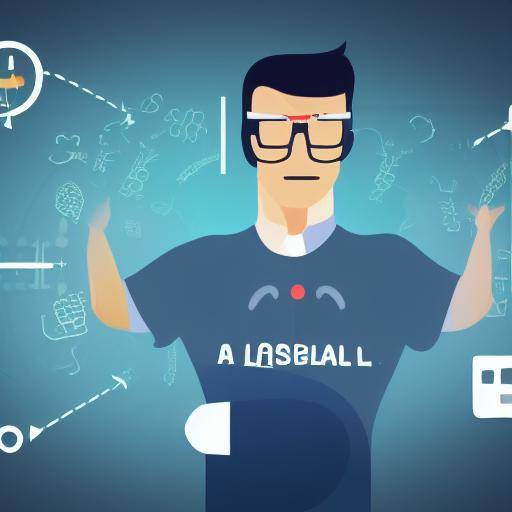
Mental flexibility is a crucial aspect in the development of self-control and emotional well-being. Closely linked to the ability to adapt to changing situations, mental flexibility impacts our ability to regulate our emotions and behaviors, which in turn influences our overall emotional well-being. In this article, we will explore in detail the relationship between mental flexibility, self-control and emotional well-being, analyzing its importance, benefits and practical applications.
Introduction
The concept of mental flexibility, self-control and emotional well-being has gained great relevance in today's society, where stress and daily demands can challenge our ability to maintain an emotional balance and make conscious decisions. Understanding how mental flexibility influences the development of self-control and the promotion of emotional well-being is crucial to promoting healthy and sustained personal growth.
In this article, we will thoroughly explore history, in-depth analysis, comprehensive examination, comparative analysis, practical advice, industry perspectives, case studies and applications in real life, as well as future trends and predictions. We will also address frequent questions that will help clarify concepts related to this fundamental issue.
History and Background
Mental flexibility has been the subject of interest in disciplines such as psychology, neuroscience and philosophy for decades. It emerged as a fundamental term in the theory of emotional intelligence, raising the importance of adapting to changing situations to manage emotions and behavior effectively. Over time, it has become a crucial research issue to understand how our minds can adapt, learn and reorganize to face challenges.
In considering self-control and emotional well-being, various studies have highlighted the connection between mental flexibility and the ability to regulate our emotions, make conscious decisions and maintain healthy interpersonal relationships. The evolution of these concepts has gone hand in hand with a growing interest in the dynamics of the mind and its impact on our quality of life.
Analysis in Deep
Mental flexibility not only implies the ability to adapt to new situations, but also the ability to perceive and understand different perspectives. This is crucial in the development of self-control, as it allows us to consciously evaluate emotions and make decisions that are aligned with our long-term values and goals. Recent research has revealed that mental flexibility is closely linked to emotional and cognitive resilience, making it a determining factor for general well-being.
By analyzing in depth the relationship between mental flexibility, self-control and emotional well-being, it is clear that these three dimensions are interconnected in an intrinsic way. Mental flexibility enhances the ability to regulate our emotions and control our impulses, which in turn contributes to greater emotional stability and personal satisfaction.
Comprehensive Examination
It is crucial to recognize that mental flexibility, self-control and emotional well-being are not static skills, but are developed over time through practice and self-conflection. The integration of strategies that foster mental flexibility, such as mindfulness meditation, stress management and the cultivation of empathy, can be fundamental to strengthening self-control and promoting emotional well-being.
From a practical perspective, it is crucial to understand that the acquisition of these skills requires a constant commitment to personal growth and self-reflection. The combination of mental flexibility with self-control and emotional well-being can positively influence different areas of life, including work, interpersonal relationships and mental health in general.
Comparative analysis
By comparing mental flexibility with self-control and emotional well-being, it is important to note that while each has specific attributes, all converge in the common goal of promoting emotional balance and personal development. Mental flexibility allows us to adapt to the various situations, self-control gives us the ability to make conscious and aligned decisions with our values, and emotional well-being provides us with a sense of satisfaction and fullness in our lives.
Practical Tips and Recommendations
To develop mental flexibility, self-control and promote emotional well-being, it is essential to incorporate practices that strengthen these skills. Some recommendations include:
- Meditation Mindfulness: The practice of full care can be a powerful tool to cultivate mental flexibility, self-control and promote emotional well-being.
- Stress management: Learning to handle stress effectively can contribute significantly to the development of self-control and the promotion of emotional well-being.
- Gratitude Journal: Keeping a journal where things are recorded for which we are grateful can help promote a positive attitude and promote emotional well-being.
Industry Perspectives and Expert Reviews
Professionals of psychology and mental health highlight the importance of mental flexibility in promoting self-control and emotional well-being. The application of therapeutic tools based on cognitive flexibility has demonstrated significant results in managing defiant emotions and behaviors.
Experts emphasize the need for a holistic approach that integrates mental flexibility, self-control and emotional well-being into therapeutic interventions and personal development programs. They believe that strengthening these skills can have a positive impact on the prevention of mental disorders and the promotion of emotional health.
Case Studies and Applications in Real Life
The concrete application of mental flexibility, self-control and emotional well-being is evident in numerous cases of success at the individual and collective level. Companies that promote working environments that promote adaptability and emotional management have experienced significant reductions in stress levels and an increase in the work satisfaction of their employees.
In educational settings, the integration of practices that promote mental flexibility has shown improvements in academic performance and conflict reduction among students. In addition, it is common to observe a positive correlation between a higher level of self-control and a better quality of life in the family and social spheres.
Future Trends and Predictions
As awareness of the importance of mental health and emotional well-being continues to grow, it is expected that the integration of programs that promote mental flexibility, self-control and emotional well-being will become even more relevant in various areas, including education, the workplace and community welfare initiatives.
Trends suggest a greater focus on the development of socio-emotional skills, with a particular emphasis on the promotion of adaptability, conscious decision-making and increased emotional awareness. These advances could have a significant impact on the prevention of mental disorders and the promotion of healthier and resilient environments.
Conclusion
The interrelationship between mental flexibility, self-control and emotional well-being is undeniable in the context of human development. The ability to adapt to changing situations, make conscious decisions and maintain an emotional balance are fundamental elements for a full and satisfactory life. Therefore, the promotion of these skills can have significant impacts on different aspects of our lives, from personal to professional.
By understanding the importance of mental flexibility in the development of self-control and emotional well-being, we can enhance our capacities to face daily challenges and promote greater emotional balance in our lives.
Frequently asked questions
What is mental flexibility and how does it relate to self-control?
Mental flexibility refers to the ability to adapt to new situations, change perspective and manage stress effectively. This ability is closely related to self-control, as mental flexibility allows us to regulate our emotions and make conscious and aligned decisions with our values.
How can I develop mental flexibility in my daily life?
To develop mental flexibility, it is useful to practice full attention, expose yourself to new experiences, learn to see situations from different perspectives and cultivate an attitude of openness and curiosity to the challenges.
To what extent can mental flexibility impact my emotional well-being?
Mental flexibility can have a significant impact on your emotional well-being, as it allows you to adapt effectively to changing circumstances, reduce stress and manage emotions in a conscious and healthy way.
How does self-control relate to the management of emotions?
Self-control is closely related to the management of emotions, as it implies the ability to regulate emotional reactions and make conscious decisions rather than act impulsively. Developing self-control can help manage stress and promote greater emotional stability.
What is the importance of self-control in the workplace?
Self-control is fundamental in the workplace, as it allows you to make conscious decisions, manage stress situations and maintain healthy working relationships. Professionals with good self-control are often more effective in solving problems and managing work teams.
What are some practical strategies to strengthen self-control?
Some strategies to strengthen self-control include the practice of meditation, the establishment of realistic goals, the management of time and the learning of stress management techniques.
In conclusion, mental flexibility, self-control and emotional well-being are fundamental components in personal development and the promotion of a healthy and fulfilling life. By understanding their importance, their interrelations and their practical applications, we can strengthen these skills in our lives and promote greater emotional balance and overall well-being.






















































